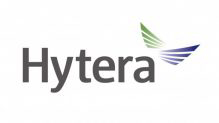 Sepura and Hytera announced on 24 May that the Sepura Group’s entire share capital is now owned by Project Shortway Limited – “Bidco”, a wholly owned subsidiary of Hytera.
Sepura and Hytera announced on 24 May that the Sepura Group’s entire share capital is now owned by Project Shortway Limited – “Bidco”, a wholly owned subsidiary of Hytera.
The deal has closed three months later than initially expected (20 February) due to the time needed to obtain the necessary regulatory approvals.
"The PMR communications industry is seeing rapid evolution, and Hytera leads in incorporating new technologies and attractive features that deliver more effective solutions for our customers," said Qingzhou Chen, founder, chairman and president of Shenzhen, Guangdong-based Hytera.
"Adding the Sepura Group complements our strengths in technological innovation, especially in TETRA, along with adding sophisticated engineering talent and an experienced operating team, and enhances our channel partnerships around the world."
Sepura has end-customers in more than 100 countries, and has the second-largest market share in public security in Europe. Hytera's acquisition of Sepura adds approximately 700 professionals and staff to Hytera's organisation. Hytera's more than 7,000 personnel serve customers in 120 countries and regions, including government organisations, public security institutions, and customers in utilities, transportation, oil-and-gas, and other sectors. Fully 40 per cent of Hytera's personnel are engaged in engineering, research and development, and product design.
"Hytera has been investing strategically in Europe," said Chen. "In 2011, Hytera acquired what is now Hytera Mobilfunk GmbH in Germany, growing it into a significant PMR provider in Europe and one of our most important research centers. By adding Sepura, Hytera now has two more innovation centers, in the United Kingdom and Spain. With enhanced capabilities, we can better serve local markets and help to address increasing security challenges in Europe," added Chen.
"Joining with Hytera gives us access to a broader cross-section of the market, gives our dealers the advantage of a wider range of products and solutions, and provides growth opportunities for our engineers and research and development technicians," said David Barrass, Sepura's interim chief executive officer. "With its growing momentum in the PMR space and some very high-profile opportunities, Hytera is executing a clear strategy as it expands globally. It's a terrific opportunity."
Last year, Hytera reported year-over-year growth of 39 per cent. In 2016, Hytera's overall sales of terminals were up 52 per cent, and its overall sales of infrastructure increased 86 per cent.
The announcement of the Sepura deal's closing follows on from the debut at Critical Communications World 2017 of Hytera's LTE-PMR Convergence Solution, which comprises multi-mode radio terminals, narrowband-broadband infrastructure, and management software. Hytera's LTE-PMR Convergence Solution incorporates feature-rich broadband technologies while ensuring that critically important voice services remain reliably accessible using narrowband technologies such as TETRA, DMR, and PDT.
Hytera's Chen will visit Sepura's offices in the UK and Spain in June to deepen relationships with key management and to meet personnel. "Hytera has tremendous momentum in the marketplace," he notes. "Last year, we became the second-largest PMR communications provider in the world, and we believe there remain excellent prospects for growth in key markets."
Now that the acquisition has been completed, attention will return to any possible effect on Sepura’s operations. The Scheme of Arrangement, which came into force on Monday (22 May) and is dated 16 January, states that Hytera intends to retain Sepura as a standalone business unit and that while Hytera has yet to have detailed discussions with Sepura regarding the latter’s integration, it sees the potential to retain Sepura’s operations while generating some limited cost savings through removing Sepura’s listed status and in some areas where there are overlaps in function (head office and central functions are mentioned as examples). There may be limited reductions in head count, but again Hytera has yet to formulate any plans.
TETRA Today has requested an update on the above from Hytera and will refresh this story should any more information be made available.
This story was updated on 25 May with additional information from a Hytera-issued press release, which did not provide any additional details on Sepura's future.
Editor’s comment
It will be interesting to see in the long-term what will happen to Teltronic’s and Hytera Mobilfunk’s research and development activities for TETRA devices and infrastructure given the technology’s relative maturity compared to public safety LTE or 5G and the potential overlap between these activities. Close cooperation between Sepura and Hytera will require a strong ability to work across cultures, given the combination of Chinese (Hytera), German (Hytera Mobilfunk), Spanish (Teltronic) and British (Sepura) employees and executives. Given that Sepura through its subsidiary PowerTrunk is responsible for the majority of TETRA projects in North America, if Hytera decides to dedicate more resources to this, the implications for the extremely valuable US LMR market could be significant.


